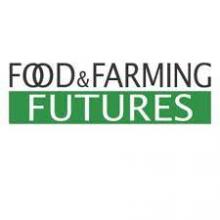The National Libraries for AgriFood is a knowledge exchange integrator service aimed at the food and farming industries, to help more efficient, sustainable supply chains. The service in currently being developed by an independant consortium body, Food and Farming Futures, as: a place where quality-vetted grey literature, advisory notices and research papers are held in collections appropriate to the agri-food sectors a large and competent repository of actual documents (mostly PDF files), videos and other electronic media files, rather than links to documents held elsewhere. You can find us on: https://www.nlaf.uk/ and join our 25K Twitter following under @FarmingFutures.
Sign up for our weekly email digesting what's new across agriculture and academia.
Follow us on our LinkedIn page - https://www.linkedin.com/company/the-national-library-of-agri-food/



